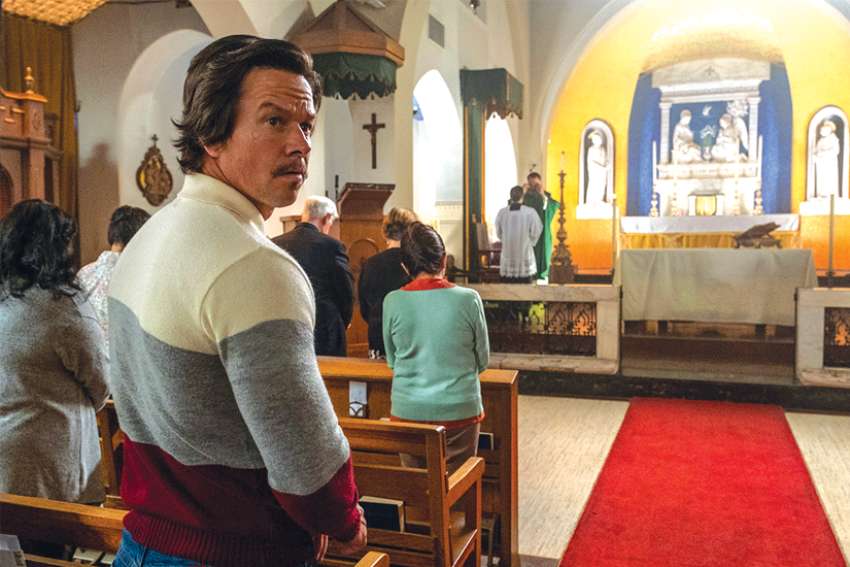My casual tweet recommending the film (and my judging it suitable for ages 13+, especially if male, even though rated “R”) garnered a strong engagement, registering both love and hate for the movie.
For me, the value of the film is that of conversion. Stu was a gritty, “real” personality before he knew God (he wasn’t even baptized), and just as gritty and real with God. Father Stu demonstrates beyond the shadow of a doubt that the God who gave us our basic personality doesn’t want to squelch it, no matter what our vocation turns out to be. God can work with any “type.” Any type can become better, can become holy. As the tagline states: “God wanted a fighter… and He found one.”
The reason I endorsed the film especially for males 13+ (despite the language), is that we rarely see much of a “muscular” Christianity — let alone a tough Catholicism — today. Not muscular in a kitschy, superficial way, but in that “never, never, never give up,” carrying-of-the-Cross, self-denial, narrow-road, imitation-of-Christ, brought-to-our-knees, virile-spirituality, deep-virtue kind of way. There’s also a dose of Theology of the Body (meaning: godly sexual wisdom). Stu can live without sex, but not without God.
Some of thumbs up for the film on Twitter were from fellow converts to Catholicism; people who were moved to tears; people who thought this was the best movie they’ve seen in years. The detractors objected to the frequent F-bombs and questioned whether we Catholics have become so inured to profanity that we accept it “like everyone else.” Others objected to one extremely short, but slightly “physical” scene of Father Stu and his ex-girlfriend. Two people claimed the real Father Stu had, in his past, had been a violent racist. (I need to do further research.)
This film, to me, isn’t so much about priesthood (with all its challenges, especially for someone coming from Stu’s background) — although many, I’m sure, are looking for heroic priest figures these days.
We needn’t canonize Father Stu, but we can certainly learn a great deal from him. The two Confession scenes are quite heartwarming and reveal God’s gentle and merciful logic at play in the life of one who sincerely wants to do His will and mature in Christ. If you go to YouTube and check out some videos of the real Father Stu talking, he possesses that quality of someone unaffectedly wearing the love of God on their shoulder for all to see.
A truth I think we’re losing as a 2,000-year-old, sometimes tired, complacent Church is that the greatest sinners often make the greatest saints. Who doesn’t thrill to the contrast of 180-degree turnarounds? And isn’t this the dimension, the raison d’être of the whole enterprise that we should all be pursuing? As Paul VI said: “The Church exists in order to evangelize”… and baptize the nations, and make new disciples! And a big, added whoopdeedoo if that newborn Christian is also called to the altars!
I knew nothing about Father Stu (the man or the movie) before screening the film. As I got into the story, I thought I knew how it was going to play out, but there was an extremely unexpected twist that I thought would be resolved a very different way. The ending also took me by surprise, which is evidence of good filmmaking. The element of physical suffering and chronic illness adds another relatable layer to the worth of Father Stu.
Did this story scream to make it to the screen? (We were told in film school to interrogate our choicest ideas with: “So what?” “What difference will this film make?” “What will happen if this film is never made?”) Father Stu did not “necessarily” need to see the light of day, but it is a very unique glimpse into the wonders of grace.
(Sr. Burns, fsp, is a Daughter of St. Paul. She holds a Masters in Media Literacy Education and studied screenwriting at UCLA. Hellburns.com. Twitter: @srhelenaburns.)


